Cyclepaths in Berlin
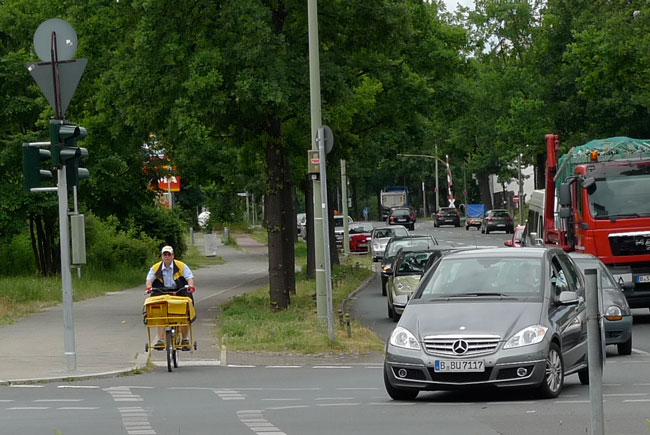
I recently visited relatives in Berlin, Germany. One morning, I borrowed an old mountain bike and rode around town. I love Berlin, especially the neighborhoods away from the tourist bustle. It’s so down-to-earth and accessible.

Berlin mixes businesses and residential spaces even more than most German towns, so you’re never far from a bakery. I stopped at one that had two tables outside, and enjoyed a mid-morning cake and hot chocolate.
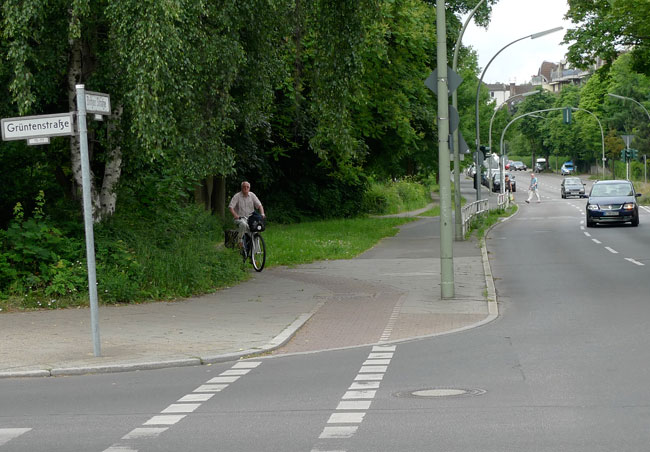
I was interested in exploring Berlin’s cyclepaths, since they are the type of facility that many U.S. cities are adopting in their quest to entice more people to cycle for transportation. Cyclepaths appeal to many Americans, since they separate bikes from cars. Berlin’s paths are off the street, but they also face the well-known problem of cyclists coming out of nowhere as they enter intersections.
Berlin really is ideally suited to cyclepaths:
- City blocks are incredibly long, since the city isn’t built on a grid. This means that there are far fewer intersections than in a typical U.S. city.
- German drivers are among the best-trained in the world. It takes dozens of hours of education (both in-car and in-classroom) before you are allowed to take the test, and even then, only two-thirds of the applicants succeed on their first try. This means that drivers know to look for cyclists as they make turns (photo at the top of the post). Even so, I witnessed a close call at one intersection, as a car turned right into the path of a cyclist.
- Cyclists travel relatively slowly, making them less of a moving target, and easier to predict.
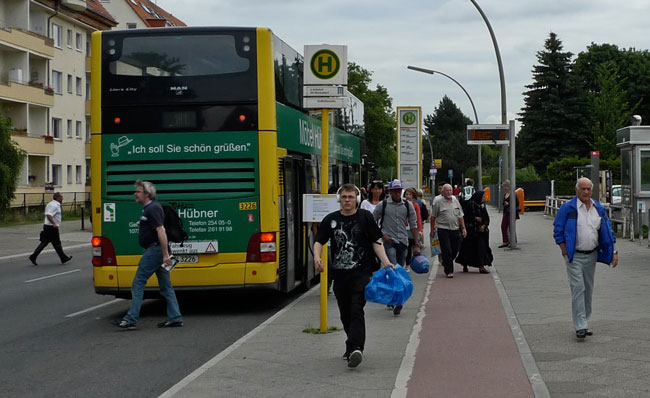
Bus stops are another issue. Here, it’s just an inconvenience as bus passengers cross the red cyclepath without looking for cyclists like me.
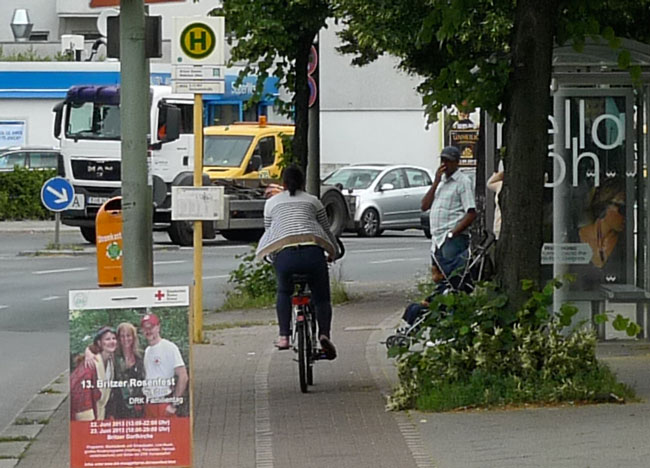
Here, it’s more dangerous. For now, the bus passengers wait off the cyclepath. But if they see the bus approaching from behind, they’ll step out into the path of the cyclist.
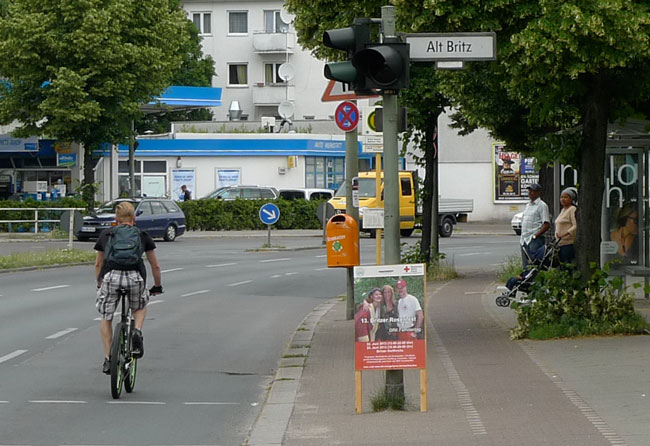
No wonder this cyclist has decided to avoid the risk and ride in the street. In Germany, this now is legal, unless there is a sign requiring the use of the bike path. Berlin is the place where the Nazis created the first mandatory bike paths to clear the streets for cars. It’s nice to see that cyclists now have regained the right to the road after 75 years of being second-class traffic.
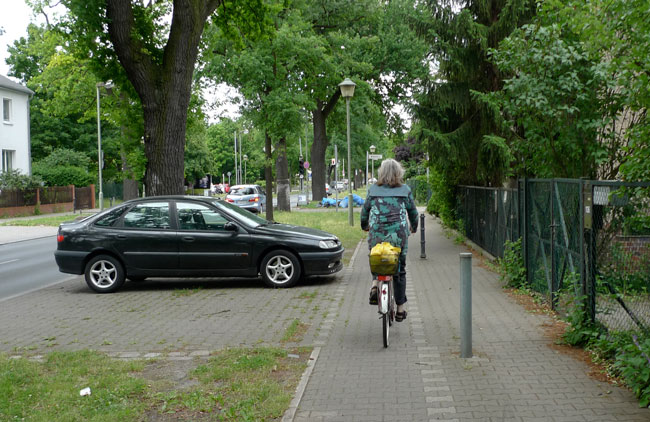
There are other reasons to avoid the cyclepaths. They are narrow, and passing slower cyclists is difficult.
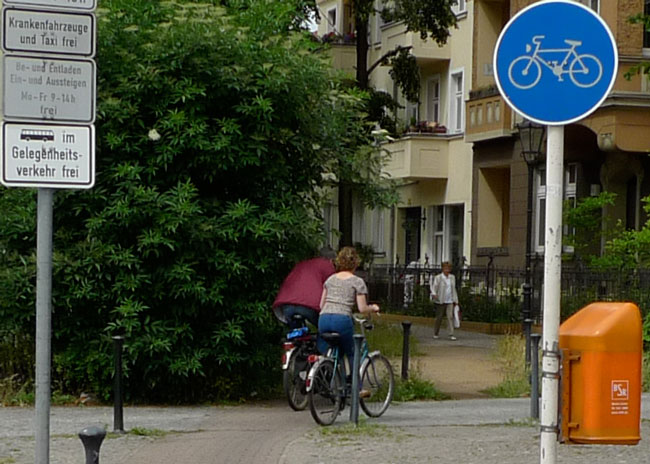
I witnessed one close call, as a lady wobbled just as a man passed her. They touched briefly, but recovered without crashing (above). The blue sign indicates that this cyclepath remains mandatory, by the way.

Not everybody is so lucky. Yesterday’s paper reported that two cyclists crashed after hooking their handlebars during a passing maneuver. One fractured his skull and injured his neck, and the other only suffered from abrasions.
Like many forward-thinking cities, Berlin has been working hard at getting more people on bikes. Their latest and most radical innovation is this:
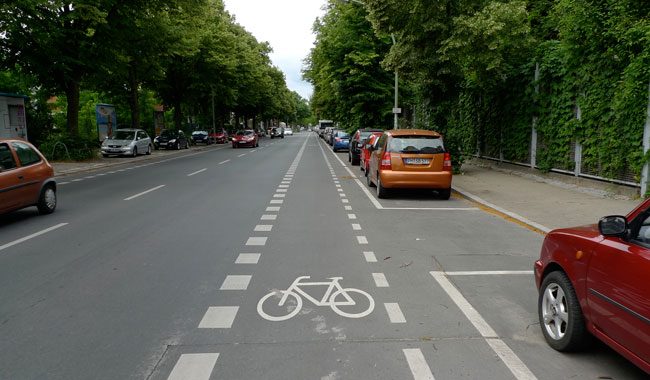
It’s an on-street bike lane. Several people here told me how big of an achievement this is: Traffic planners now view cyclists as an equal part of traffic. What I especially like about Berlin’s bike lanes is that they stay clear of the “door zone.”
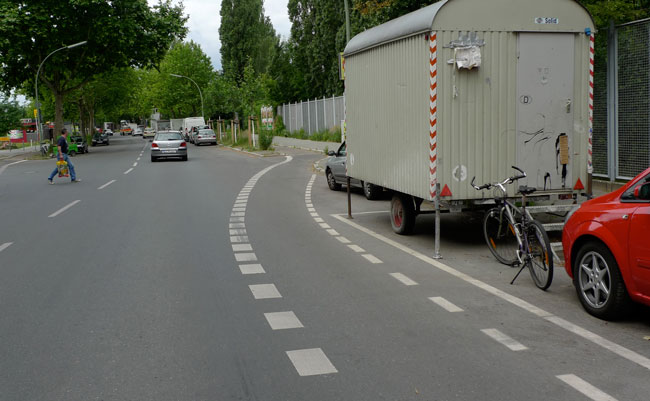
It was nice to cycle on smooth pavement, without worrying about intersections, bus stops and slow cyclists wobbling into my path. But all good things eventually come to an end, and after half a mile, I was guided back onto the separated cyclepath.
However, as more streets in Berlin are being rebuilt, the city plans to add more on-street bike lanes. I hope the U.S. doesn’t imitate Berlin’s past (segregated cyclepaths), but it’s future (door-zone-free bike lanes).
Click here to read more posts about cycling safety, cyclepaths and bike lanes.


